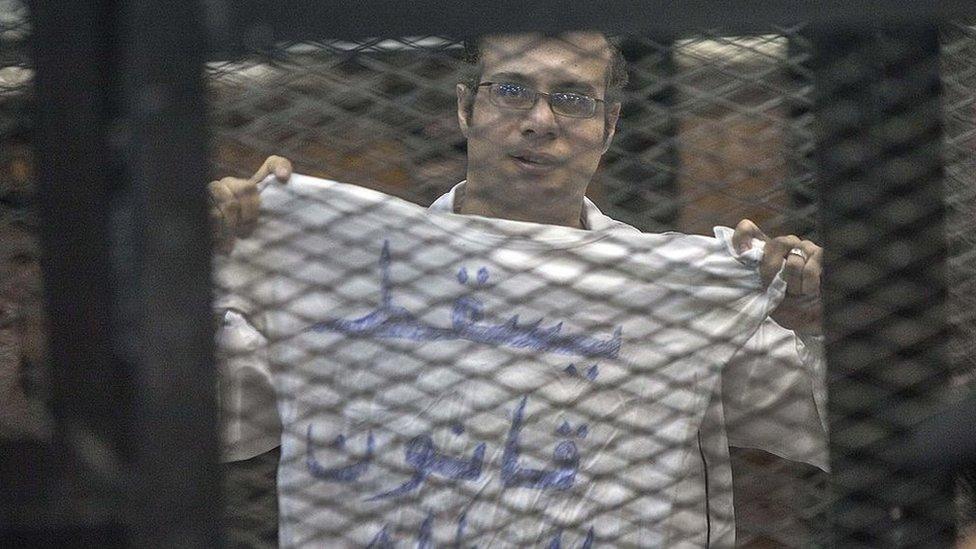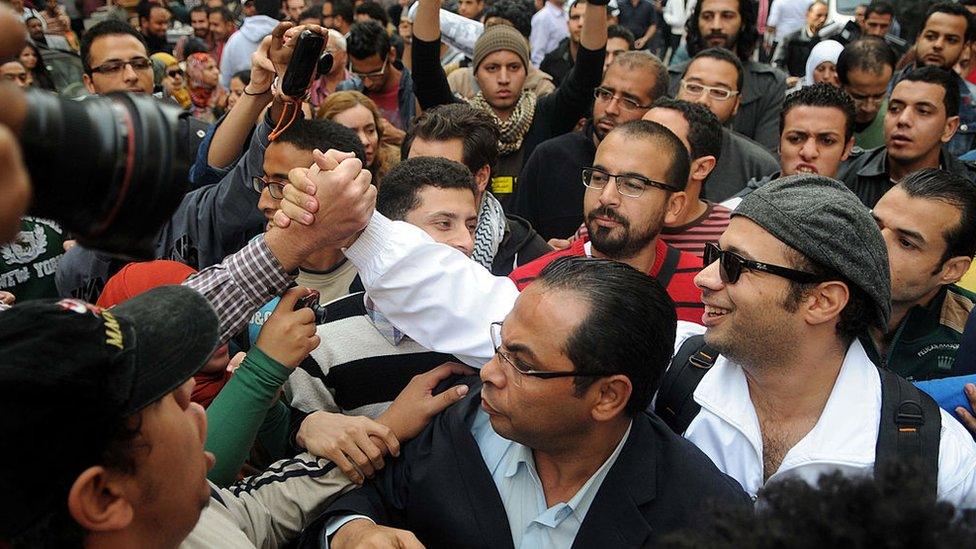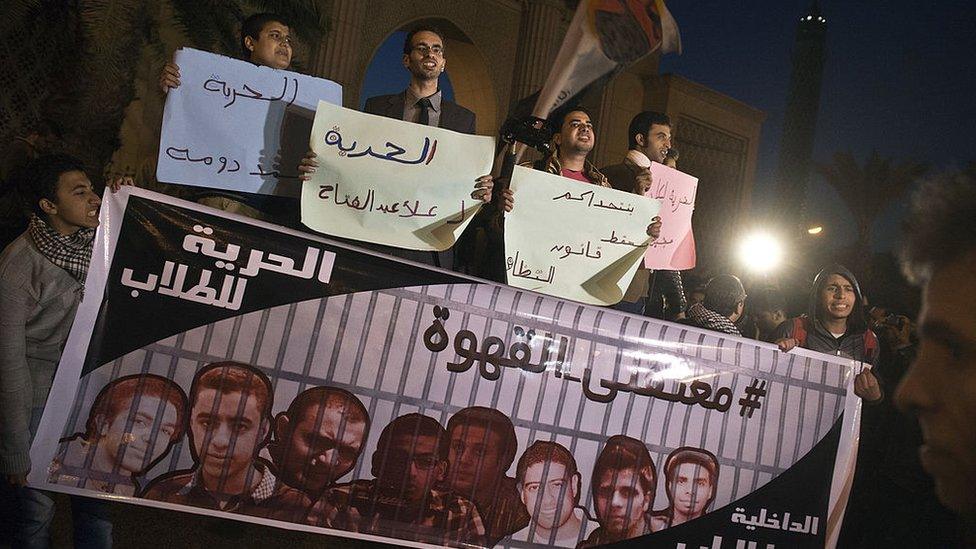Egypt youth activist Ahmed Maher released from prison
- Published

Ahmed Maher was jailed in 2013 after protesting against a law banning unauthorised gatherings
The prominent Egyptian activist Ahmed Maher, one of the leaders of the 2011 uprising that toppled Hosni Mubarak, has been released from prison.
A security source told AFP news agency that Mr Maher was freed on Wednesday evening after completing his jail term.
His lawyer, Anas Sayed, said he would remain under judicial supervision.
A founder of the April 6 youth movement, Mr Maher was arrested in 2013 while protesting against a new law banning unauthorised public gatherings.
He and two other activists, Mohammed Adel and Ahmed Douma, were convicted of protesting without permission and assaulting police in November of that year and sentenced to three years in prison.

Maher (R) is one of many secular activists to have been jailed in a crackdown on dissent
Adel, another founder of the April 6 movement, was still incarcerated as of Thursday morning, according to AFP. Douma is also serving a life sentence for a separate conviction of rioting, inciting violence and attacking security forces.
The law giving the interior ministry the right to ban public meetings of more than 10 people was passed months after the military overthrew Mubarak's democratically elected successor, Mohammed Morsi, in the wake of mass protests.
Since then, courts have sentenced hundreds of people for protesting illegally as part of a wider crackdown on dissent by President Abdul Fattah al-Sisi, the military's former commander-in-chief.
The April 6 movement started out as a Facebook group set up in 2008 to organise young people and express solidarity with striking textile workers.

The April 6 movement was banned by a court in April 2014
In January 2011, its members played a leading role in organising the mass pro-democracy protests that forced Mubarak to step down after 30 years in power.
The movement supported Morsi in his 2012 presidential election campaign, but backed calls for him to resign the following year because of his Muslim Brotherhood's perceived power-grabbing and economic incompetence.
It then turned against the military-backed government after it launched its crackdown on dissent, vowing to fight the anti-protest law.
In April 2014, a court banned the activities of the April 6 movement after a lawsuit was filed accusing it of engaging in espionage and defaming Egypt's image abroad.